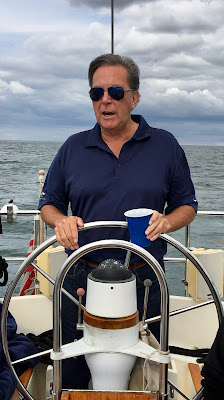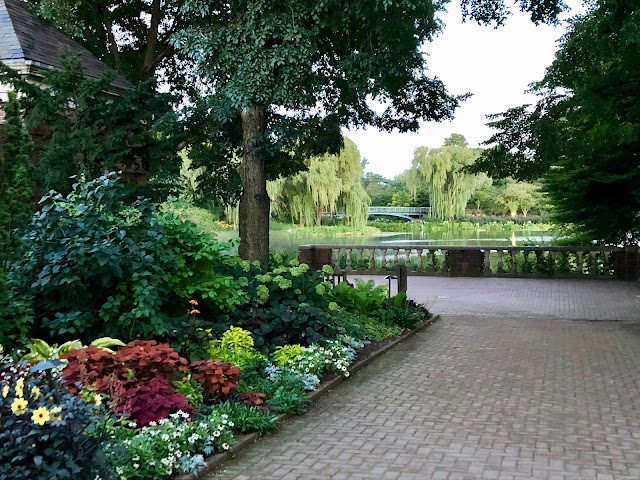By Caren Jeskey
If you’ve seen Anne Heche on stage or screen, chances are you were transfixed — a wan, elfish creature with talent and wit. Like Kathryn Hahn and Parker Posey, Heche had an alluring, mercurial quality that made it hard to look away.
“I wasn’t born with it either. I had to learn to be crazy.”
—Anne Heche
Somehow I’d missed the melee between Heche’s angels and demons, until now.
Her life was an uphill battle starting with abuse by her father in a household where the truth was not allowed to be spoken. She was an extreme nail biter, and in her memoir — that’s now selling for upwards of $500 — she wonders “why people didn’t look beyond the spotted bloody clumps” of her fingers “to think there was something hidden there, perhaps family secrets, perhaps pain.” Maybe they did, but they did not know what to say.
It’s terrifying to think of how such pain, unhealed, can turn into fire and brimstone right here on earth, in sunny southern California. In a guest appearance on the Adam Carolla Show in October of last year it was clear that Anne was in trouble. She was skin and bones, jittery and slurring. She poured disorganized words forth with pressured, impassioned speech that was hard to follow.
In May of this year as a guest on a show called Women of Impact, she was just barely holding it together. Host Lisa Bilyeu lavished praise on Heche. “You sit here an Emmy winner with your own podcast looking like you love life.”
“I do,” Anne unconvincingly replied with a smile and vacant eyes. She went on to charm her host with a Hollywood mask. She offered words of false or maybe hopeful wisdom, as though her waking nightmares were a thing of the past.
Over the years Heche spoke of her alter ego, “the half sister of Jesus Christ. I created another entity that was from Heaven. Celestia is the reason I believe I survived. She was the consistent love that allowed me to know that I could get to the other side of my abuse.” Probably disassociation. We now know that Celestia’s powers only went so far. They may have comforted Heche, but they did not provide her with the real help she needed.
On Daily Blast Live, the hosts said what a lot of people were thinking. I cringed as I watched it, knowing that more stigma is the last thing we need. Host Al Jackson casually mentioned “I stopped drinking. I am doing yoga,” just before he addressed their expert guest, Dr. Drew Pinsky. Jackson insinuated a problem of his own with alcohol, then moved right on to analyzing another’s life.
This is what we do. True self awareness — really sitting with and being completely honest about who we are — is a lot harder to bear than focusing on others’ deficits and failings. This is the root of stigma. Not seeing that we are all human and we all need help in one way or another. It’s not us and them. It’s just us.
Jackson continues: “I am glad you are bringing up mental illness. It’s a buzz word in our society now. Anne Heche said since 2001 she’s been dealing with mental health issues. We are all sympathetic to mental health issues until it affects you. Until somebody with mental health issues comes plowing into your front yard or my front yard.” Then it’s “I don’t care about your mental health issues. My kids are playing in my yard. How do we as a society show empathy for this but also not forgive it?”
This is a timely place to say that I have driven drunk. I know “good” people who have, and who still do. I see it all the time. “I’m fine,” they say. I said. It takes a lot less then one realizes to be an unsafe driver.
If we are going to make society safer from people who are living in addiction and mental illness, we need to see and care about people, not see others as illnesses to be avoided. Or we can try to hide, but it’s getting harder. “They” might be us, and if not, they are just one or two degrees removed.
Per Zeinab Hijazi, the senior mental health technical advisor at UNICEF: “One in seven kids under 19 years old experiences some kind of mental health disorder around the world. Mental health [issues] remain stigmatized and underfunded in almost every country, rich or poor. Even before the pandemic, far too many children were burdened under the weight of unaddressed mental health issues, including that one in four children live with a parent who has a mental health condition, and that really half of all mental health conditions start by age 14 and three‑quarters by age 25. But most cases, while treatable, go undetected and untreated.”
Just assume that you know nothing about mental illness. Even as a psychotherapist with decades of experience I have more to learn than will be even remotely possible in this lifetime. Did you know, for example, that “a growing number of psychiatrists maintain that, as a presumed disease entity, as an identifiable state, schizophrenia simply does not ‘exist?'"
Did you know that there are support groups for people who hear voices? Where they are allowed to be themselves and are not shunned or locked up? It’s okay to say “I don’t know” and to be curious rather than assume we know what others are going through. We are not the judge and jury when it comes to Anne Heche, or anyone else. We cannot know what it was like to walk in her shoes. It is not lost on me that she traumatized a woman, nearly killed her and her pets, destroyed a home, and nearly harmed others on that fateful day. Her actions were horrible. The extreme problem with her brain, booze and drugs was peppered all over the internet. Why were we not more equipped to notice? And to get in there and help before it was too late?
On Daily Blast Live, the hosts said what a lot of people were thinking. I cringed as I watched it, knowing that more stigma is the last thing we need. Host Al Jackson casually mentioned “I stopped drinking. I am doing yoga,” just before he addressed their expert guest, Dr. Drew Pinsky. Jackson insinuated a problem of his own with alcohol, then moved right on to analyzing another’s life.
This is what we do. True self awareness — really sitting with and being completely honest about who we are — is a lot harder to bear than focusing on others’ deficits and failings. This is the root of stigma. Not seeing that we are all human and we all need help in one way or another. It’s not us and them. It’s just us.
Jackson continues: “I am glad you are bringing up mental illness. It’s a buzz word in our society now. Anne Heche said since 2001 she’s been dealing with mental health issues. We are all sympathetic to mental health issues until it affects you. Until somebody with mental health issues comes plowing into your front yard or my front yard.” Then it’s “I don’t care about your mental health issues. My kids are playing in my yard. How do we as a society show empathy for this but also not forgive it?”
This is a timely place to say that I have driven drunk. I know “good” people who have, and who still do. I see it all the time. “I’m fine,” they say. I said. It takes a lot less then one realizes to be an unsafe driver.
If we are going to make society safer from people who are living in addiction and mental illness, we need to see and care about people, not see others as illnesses to be avoided. Or we can try to hide, but it’s getting harder. “They” might be us, and if not, they are just one or two degrees removed.
Per Zeinab Hijazi, the senior mental health technical advisor at UNICEF: “One in seven kids under 19 years old experiences some kind of mental health disorder around the world. Mental health [issues] remain stigmatized and underfunded in almost every country, rich or poor. Even before the pandemic, far too many children were burdened under the weight of unaddressed mental health issues, including that one in four children live with a parent who has a mental health condition, and that really half of all mental health conditions start by age 14 and three‑quarters by age 25. But most cases, while treatable, go undetected and untreated.”
Just assume that you know nothing about mental illness. Even as a psychotherapist with decades of experience I have more to learn than will be even remotely possible in this lifetime. Did you know, for example, that “a growing number of psychiatrists maintain that, as a presumed disease entity, as an identifiable state, schizophrenia simply does not ‘exist?'"
Did you know that there are support groups for people who hear voices? Where they are allowed to be themselves and are not shunned or locked up? It’s okay to say “I don’t know” and to be curious rather than assume we know what others are going through. We are not the judge and jury when it comes to Anne Heche, or anyone else. We cannot know what it was like to walk in her shoes. It is not lost on me that she traumatized a woman, nearly killed her and her pets, destroyed a home, and nearly harmed others on that fateful day. Her actions were horrible. The extreme problem with her brain, booze and drugs was peppered all over the internet. Why were we not more equipped to notice? And to get in there and help before it was too late?
One way to de-stigmatize so-called mental illness is to learn more. Learn as much as you can and start with yourself, your family, your friends, and your community.
“Ours is not the task of fixing the entire world at once, but of stretching out to mend the part of the world that is within our reach.”
― Clarissa Pinkola Estés














